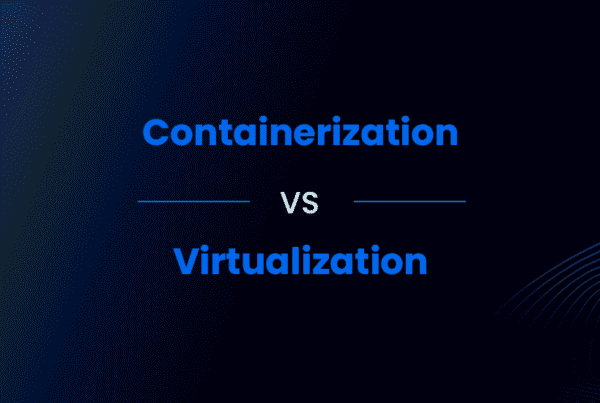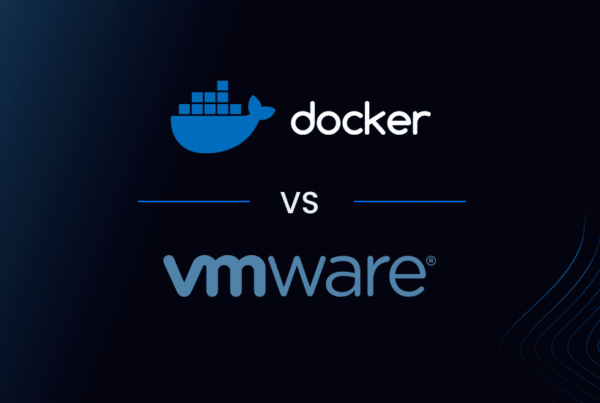When it comes to containerized application management and deployment, the two most popular options come to mind. Yes, we are talking about Kubernetes and Docker.
Both are widely used but each has its nuances that depending on one scenario or another, it is better to choose one or the other. In this article we will compare the differences between Kubernetes and Docker and we will see in which scenarios one or the other is better.
What is Kubernetes?
Kubernetes, often known as K8s, is an open-source platform for automating containerized application deployment, scaling, and administration. It was created by Google and it has subsequently been adopted by numerous enterprises because to its capacity to handle large-scale, multi-node installations.
Kubernetes operates by offering a standardized set of abstractions for managing containers such as pods, services, and volumes. These abstractions enable highly available container deployment, scaling, and management simple.
How Kubernetes works?
Kubernetes can run on two different types of nodes: physical machine nodes or virtual machine nodes. Containers scheduled by Kubernetes are run on these nodes to ensure that they run as they should run.

Its main features are:
- Auto-scaling: Automatic scaling of the application based on defined rules such as traffic increase or resource utilization.
- Self-healing: Built-in mechanisms for detecting and troubleshooting problems with containers can ensure that your applications remain up and running and available.
- Load balancing: Distribution of inbound traffic among multiple containers to provide high availability and reduce downtime.
- Rollouts and Rollbacks: Deploy new versions of an application and revert to previous versions if necessary. This facilitates the management and testing of upgrades.
- Resource Management: Advanced resource management, such as CPU and memory quotas, to ensure that your containers have access to the resources they need to operate efficiently.
What is Docker?
Docker is a free and open-source software framework for managing application containers. By using containers, developers can pack an application and all of its dependencies into a portable bundle. Docker’s ease of use in managing containers and images is matched by the robustness of its ecosystem in terms of the tools and services that can be used to augment its functionality.
How Docker works?
In order to create, execute, and manage containers Docker uses a client-server architecture in which the client interacts with the Docker daemon. The hard work, such as creating the image, starting and stopping containers, and controlling the network and storage for containers, is handled by the Docker daemon.

Some of the features of Docker are:
- Image Management: Centralized repository for storing and sharing Docker images. This makes it easier for developers to distribute applications.
- Containerization: Developers can package their applications in containers. This way they can run consistently on any host with a Docker runtime.
- Multi-host Networking: Built-in overlay network that allows containers to communicate with each other even if they are running on different hosts.
- Volumes and Bind Mounts: Provides a way to persist the data generated by containers through the use of volumes and bind mounts. This makes it easier to manage the state of your applications.
- Portable and Lightweight: Containers are designed to be portable and lightweight. This facilitates the deployment and management of applications on various platforms.
Main Differences
- Purpose: The main use of Docker is to package and distribute applications. Kubernetes focuses more on automating, scaling and managing containerized applications.
- Containerization: Docker provides a way to package applications into containers. Kubernetes provides a way to manage and orchestrate them.
- Networking: The network connectivity provided by Docker is basic. Kubernetes has more advanced features such as load balancing, service discovery and network policies.
- Scalability: Docker container scaling is basic. Kubernetes offers more advanced features such as automatic scaling, continuous updates or self-healing.
- Storage: Support for storage management is somewhat limited in Docker. As for Kubernetes, it offers better features such as persistent volumes, dynamic provisioning or storage class.
- Configuration: Docker has minimal support for container configuration. In the case of Kubernetes it has comprehensive configuration management tools such as configuration maps, secrets and environment variables.
- Extendibility: Docker has limited extensibility. Kubernetes provides a large number of extensions and plugins via its API and ecosystem.
- Community: The Docker developer community is large. In the case of Kubernetes, its growth is more focused on large organizations.
When to Use Kubernetes
When it comes to managing large-scale, multi-node installations, Kubernetes is often the choice of enterprises due to its high availability and good orchestration capabilities.
Organizations also tend to prefer Kubernetes because of its high scalability and concurrent management across many containers.
When to Use Docker
Docker in its case, is a good option for those companies that are starting to use containers and what they are mainly looking for is simplicity.
It can also be the case that large organizations use Docker because they do not require high scaling capabilities or orchestration.
Apart from enterprises, Docker is also commonly used by developers who need to design and test applications quickly in a container environment.
Conclusion
In conclusion, the decision between Docker and Kubernetes comes down to your specific needs and the complexity of your project.
While Docker provides a simpler solution for smaller, single-container applications, Kubernetes offers more robust features for managing multiple containers and scaling.
The choice between the two ultimately depends on the size and scope of your project, as well as your team’s expertise and experience
Whichever solution you choose, it is important to consider your current and future needs to ensure that you select the right tool for your organization’s goals.
Regardless of the choice, both Docker and Kubernetes have proven to be valuable tools in the world of containerization and continue to evolve and improve.




